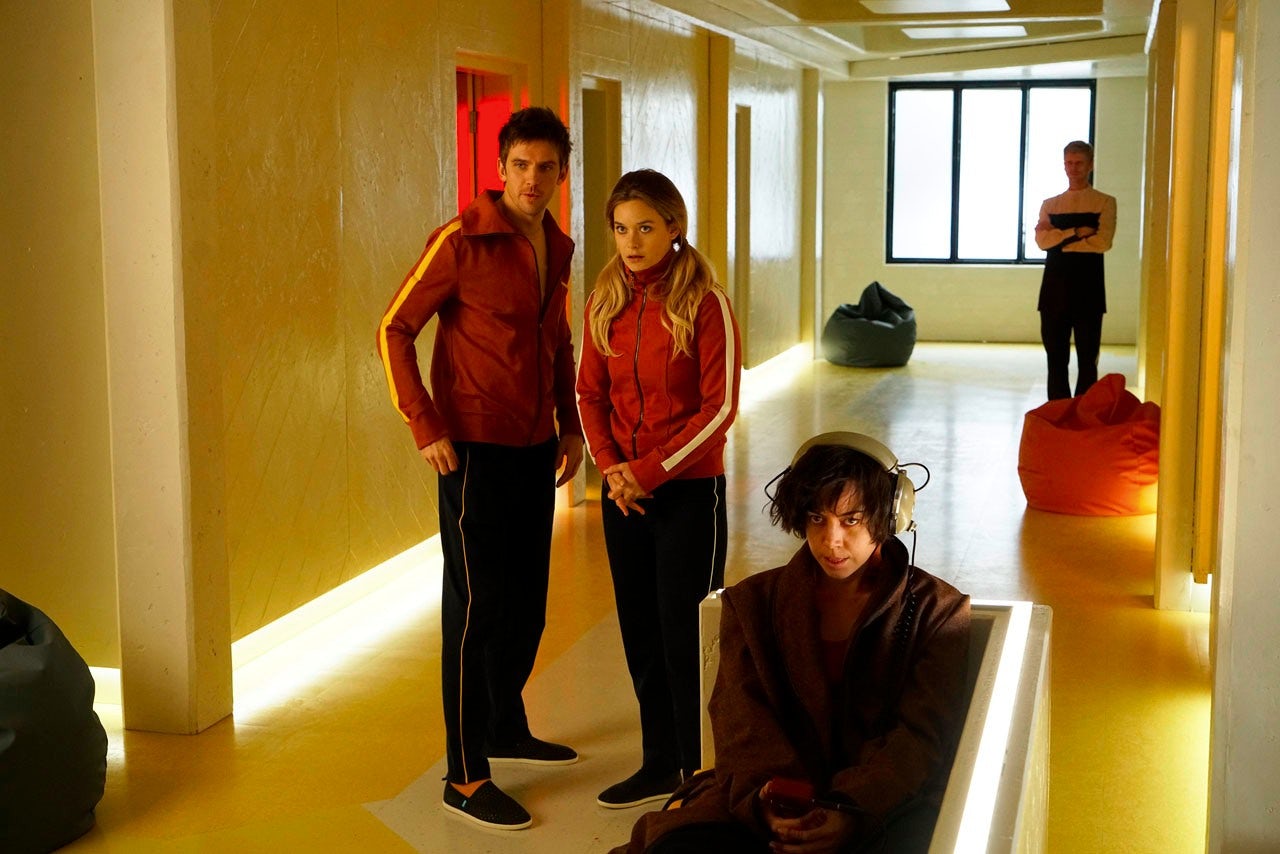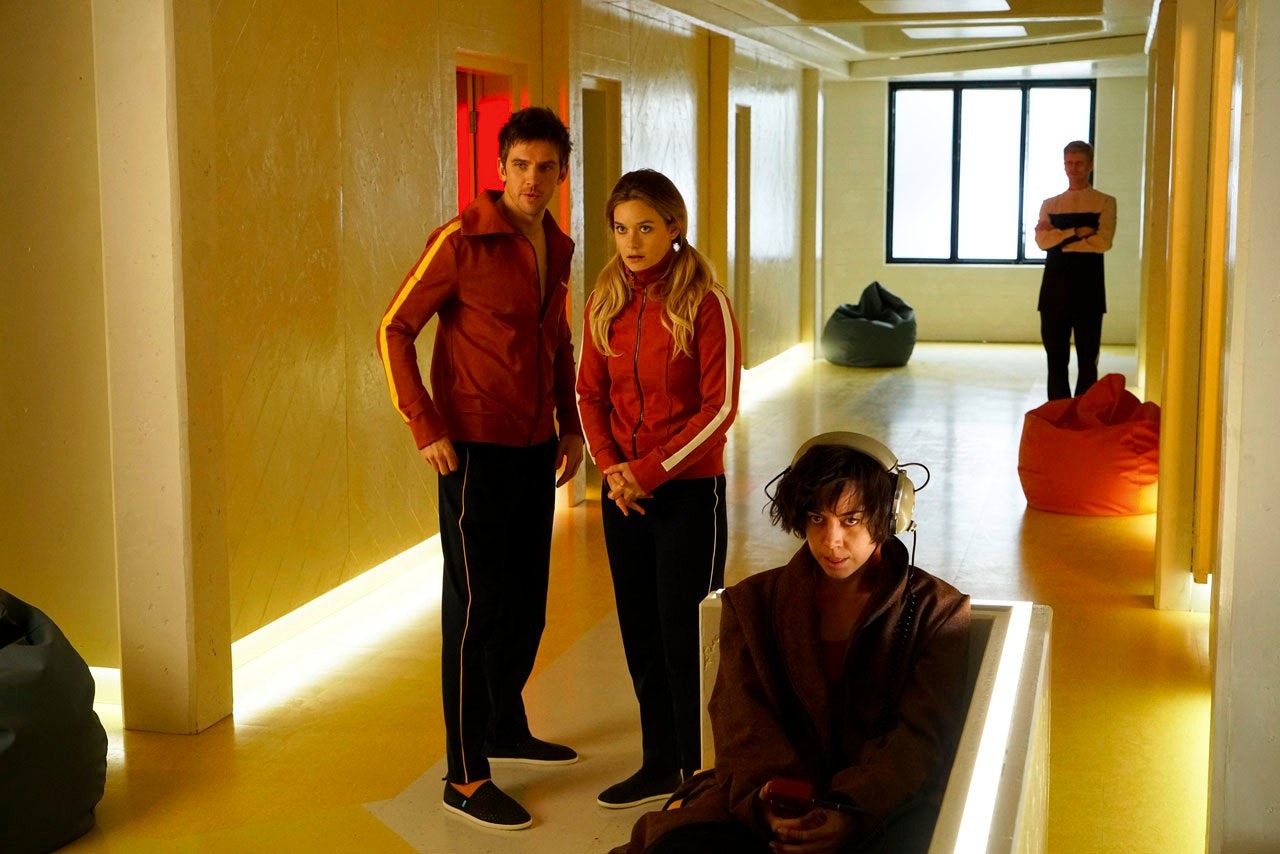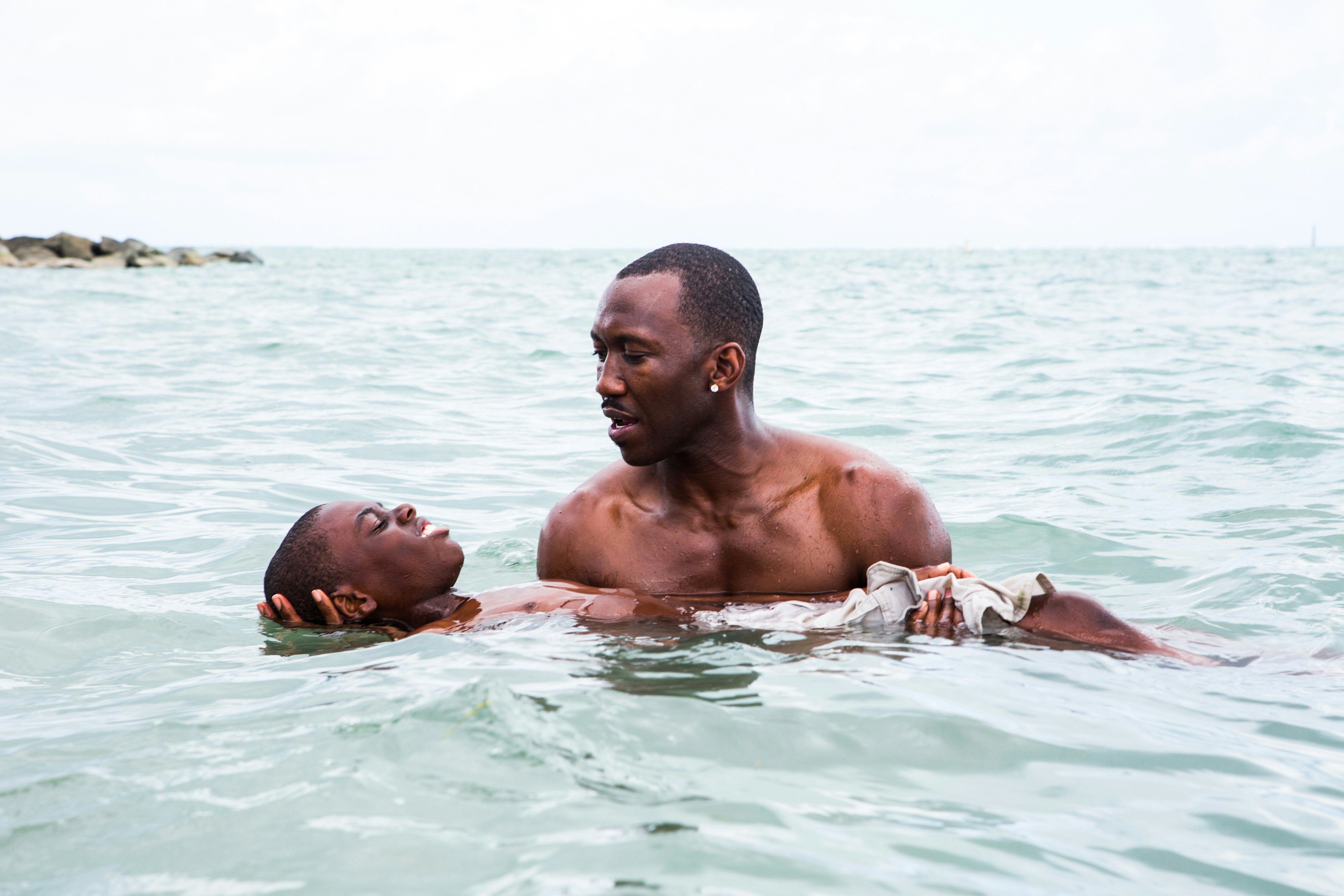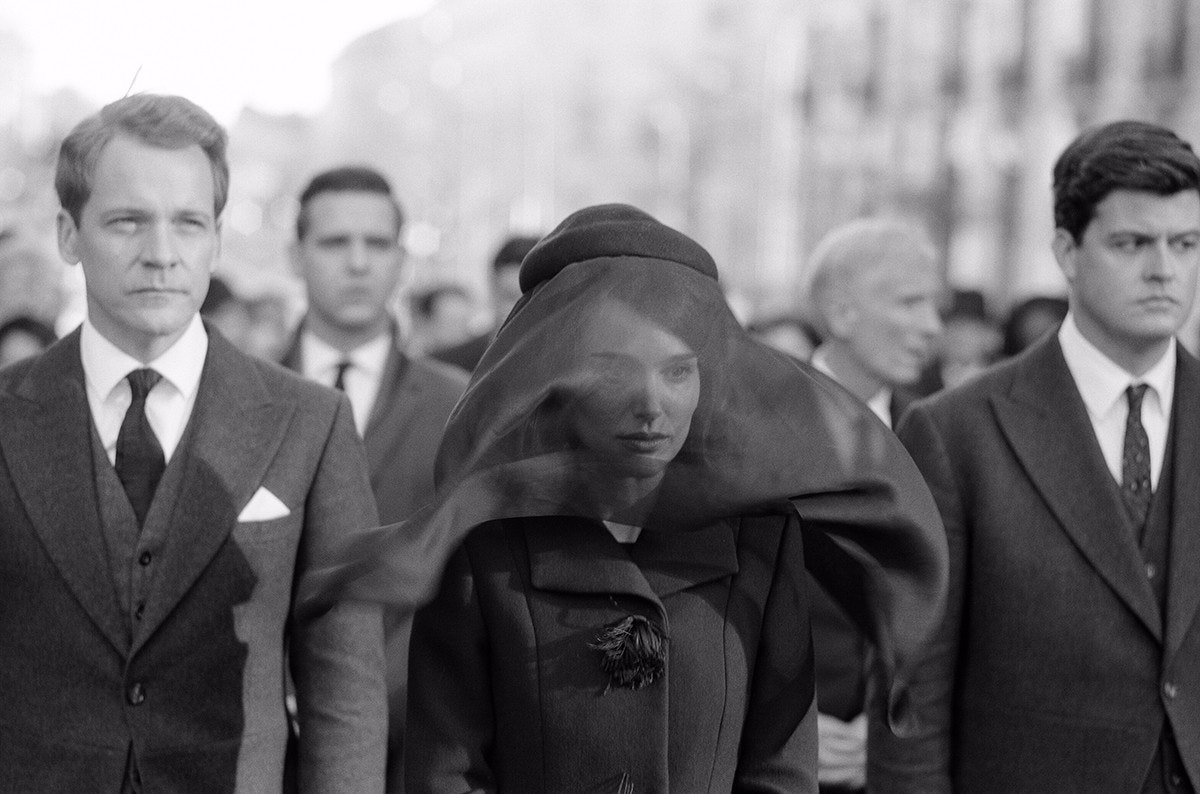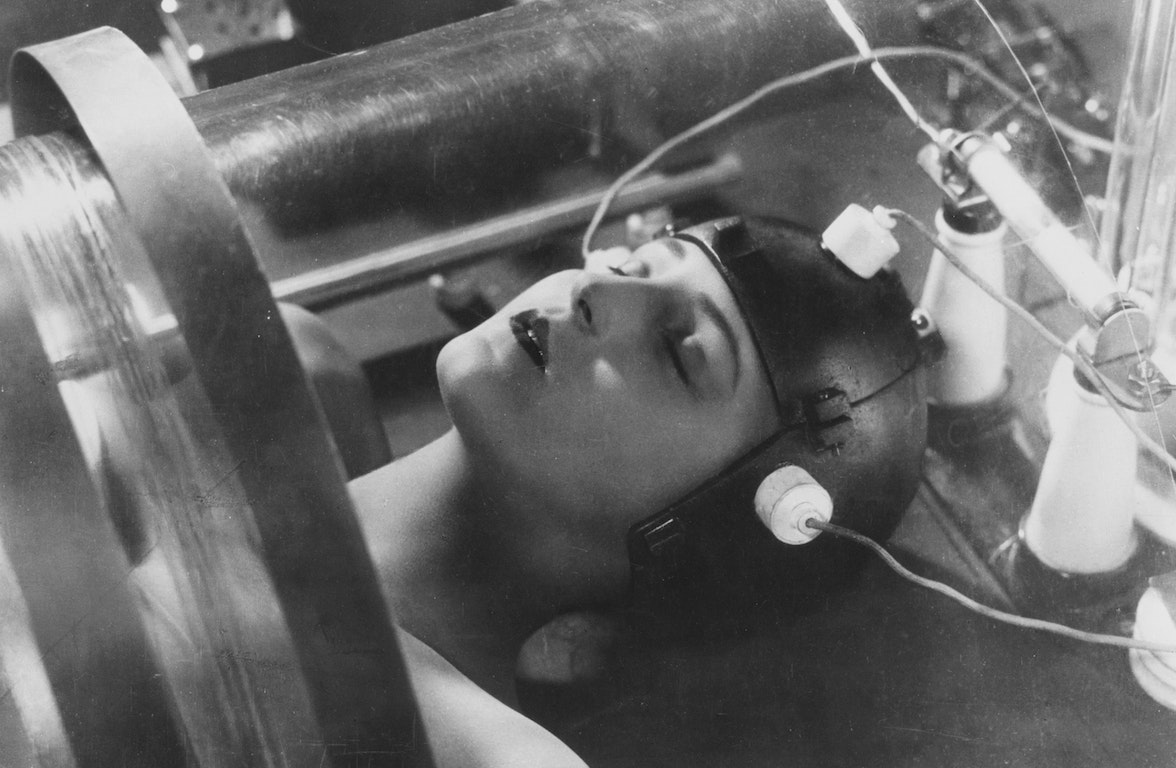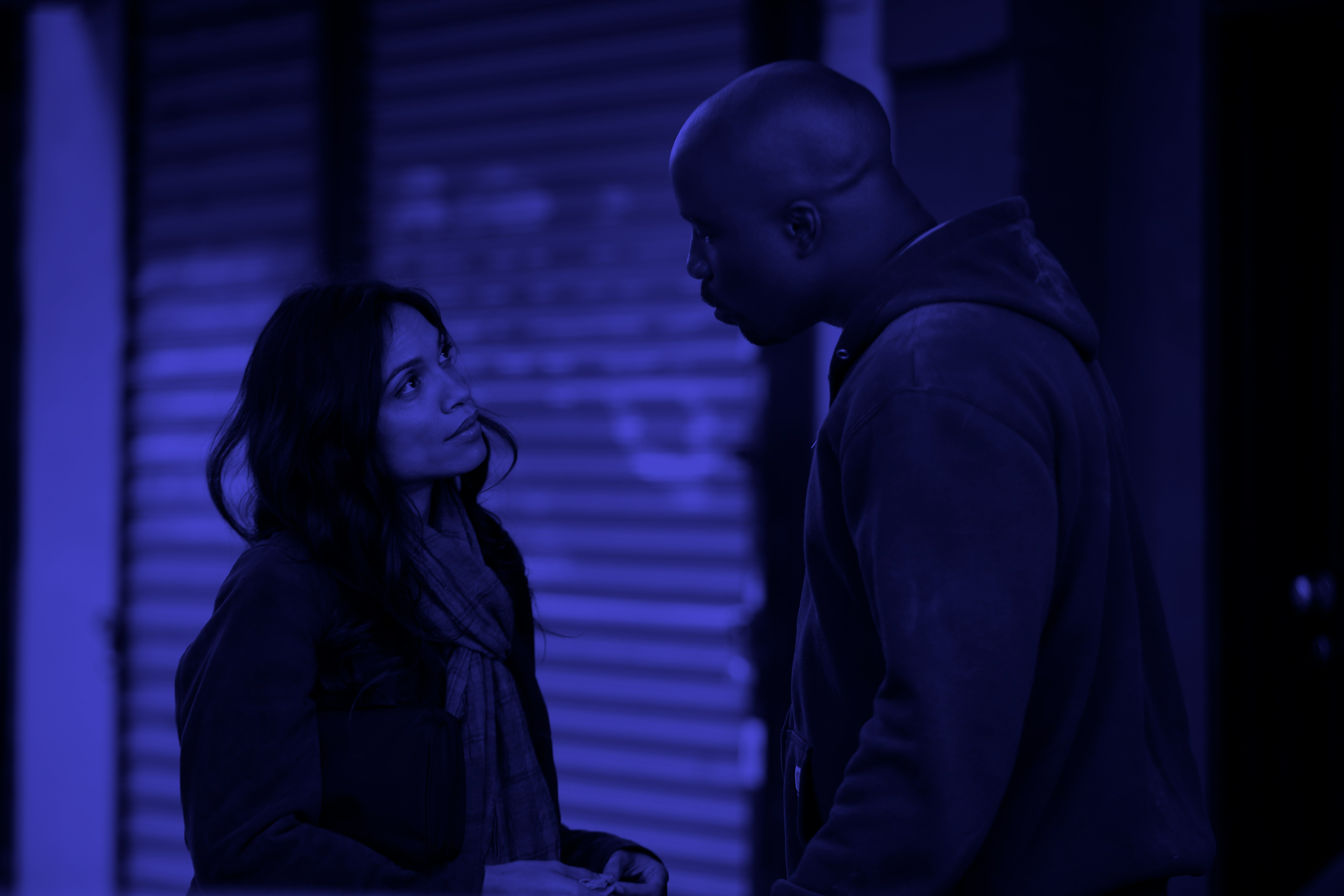In the fifth episode of Noah Hawley’s highly acclaimed FX series Legion, there is a moment so stunningly offensive and morally questionable that I had to replay it to make sure I’d heard the characters correctly. The show, which is a loose adaption of X-Men comics, centers on David Haller (Dan Stevens), a young man with suicidal impulses and a diagnosis of schizophrenia that has traveled with him since adolescence. David, a powerful mutant with a bevy of abilities including telepathy, telekinesis, and teleportation, discovers that the voices he’s been hearing are real. The show’s central question: Is he really crazy, or is his madness just how his powers manifest?
In the scene in question, David and his girlfriend, Syd Barrett (Rachel Keller), have found a way to have sex. She’s a mutant who has no control over her ability to switch bodies with other people, making the proposition a difficult one. David’s way around this is to transport them mentally into a romantic fantasy. Everything feels real, but it’s actually all happening in their minds. In an all-white room, bathed in a brilliant blue light, David asks Syd whether this is her “first time.” She replies, “No. My first time — he was one of my mother’s boyfriends. We had a flirtation, and I was curious. One night they had too much to drink, my mom passed out on the couch. I heard him in the bathroom taking a shower, so I touched her hand and then I was her. We went into the bathroom, but the switch didn’t last long then. And when he was inside me, I changed back.”
What Syd is describing is undoubtedly rape. She took away the consent of her mother’s boyfriend by using her powers to fool him. But writer Peter Calloway, director Tim Mielants, and showrunner Noah Hawley treat this significant fact as a minor bit of backstory, drowning it with uncomfortable, swoony romanticism. The episode then returns to the real fun: the gonzo stylistic elements that have garnered Legion wide acclaim for being a different and decidedly more serious superhero work.
While it isn’t a ratings powerhouse, Legion has been renewed on the strength of its critical standing. In his review of the first few episodes for Vulture, critic Matt Zoller Seitz compared Legion to the audacious directorial work of Bob Fosse in All That Jazz (1979) and to the retro-hipster aesthetic of Wes Anderson. Seitz wrote, “[T]he pilot in particular is an all-timer, but the whole thing is so aesthetically fresh that I could see myself continuing to watch it even if it suddenly became dumb as hell, just to see what new storytelling trick showrunner Noah Hawley and his collaborators have up their puffy magicians’ sleeves.” After just seven episodes, Legion has been hailed as a masterwork that should light the way for future superhero adaptations in charting a bolder course in film and TV.
On the one hand, it’s easy to see why: The series is genuinely dazzling, with episodes turning into surprising moments involving Bollywood-style dance numbers, wild explorations of David’s unraveling mind, and elements from horror. It’s brightly colored, unmoored in time and place. But, on the other hand, as Syd’s revelation in the fifth episode demonstrates, Legion doesn’t just favor style over substance; it believes style is the only thing that matters.
The high pitch of praise for the series, which has come from both critics and members of the sprawling fandom, overlooks the pointed lack of care with which it treats its characters. Their depth is secondary to the next extravagant set piece. Legion’s acclaim in the face of profound storytelling issues — which, by the way, go beyond the handling of Syd’s experience — puts in stark relief the problems surrounding the superhero genre itself. Both formal and informal discussions of superhero films and TV shows tend to pivot around the same topics: surface-level identity politics, relationship with the canon, and hints pointing to the next installment or episode.
Worse yet, superhero films are “graded” on a curve that rarely considers the weight of the genre as one of America’s most high-profile cultural exports. As Manohla Dargis wrote in her review of The Avengers 2 in 2015, “The most relevant thing about a movie like this is that its quality is almost entirely irrelevant. It was created to crush the box office, entertainment media and audience resistance, and mission, you know, already accomplished. In an age of lock-step entertainment, pushback isn’t just immaterial; it is also suspect.”
When a film goes a bit above others in the category, it’s so effusively praised because other comic works are often the primary litmus test. Take 2014’s Captain America: The Winter Soldier, which was hailed as a scintillating spy drama on par with classics such as All the President’s Men (1976). As Alex Pappademas wrote for Grantland, “Captain America: The Winter Soldier books Robert Redford as the heavy and makes a few halfhearted allusions to our own imperiled civil liberties, and everyone calls it a ‘’70s political thriller’ with a straight face, forgetting that actual ’70s political thrillers seldom excused government malfeasance by blaming it on defrosted Nazi agents.”
Now take, for example, more recent works like Legion, Logan, and Deadpool. All have been positioned as harbingers of a better, more daring age for superhero stories in film and television and as offerings that live up to the wild potential of the genre. And though they might have some positive qualities, these works highlight how narrow the conversation around the genre is and the lack of complexity we’ve come to expect from them.
To say the superhero genre is in a precarious place is an understatement. These films and TV shows remain a focal point of Hollywood, bringing in staggering box office numbers and attendant viewership. But the dismal reception of Netflix’s latest Marvel series, Iron Fist — which I found to be aggressively dull and visually rote — has made it painfully clear that the genre is in dire need of evolution. Iron Fist represents many issues that plague the superhero genre overall: a reluctance to experiment with narrative beyond what the source material provides; aesthetic repetition to the point that everything feels like a grim copy; and a palpable emotional emptiness.
One lesson some critics and viewers are taking from Iron Fist is that the superhero genre is too married to comics’ canon. But I don’t think that’s exactly true. Superheroes have become a genre in and of themselves, but they don’t all inherently have a narrative or aesthetic basis strong enough to support such prolonged work. For example, that Logan is primarily a Western with superhero elements is a cornerstone of its success. Whether Iron Fist’s perceived failure will cause fans and critics alike to scrutinize the genre more closely and to demand more complexity remains to be seen. For Vulture, Abraham Riesman argued, “If those who stir superhero brews onscreen want to save the genre from the very real threat of stagnation, the greatest lesson they can draw from Iron Fist is this: Reverence to comic-book source material is often a losing strategy.”
It’s a fair point, but the problem isn’t simply that these films and TV shows are obsessed with canon to the point of being stifling. A lot of adaptations tweak their stories enough that they aren’t following the canon completely anyway. Furthermore, comic-book canon is notoriously thorny and complex for characters with decades of material to sift through like Batman, Superman, Spider-Man, and Wonder Woman. In many cases, it’s that they aren’t adequately looked at as being part of a separate medium that needs to find ground of its own to stand on. The problems with Legion, for instance, can’t be blamed on the comics they are loosely based on. Legacy, the X-Men series written by Simon Spurrier, has just as much artistic merit and far more emotional weight than its TV counterpart. Legion may be presenting a story you’ve seen before in a way you haven’t, but it’s rich with details everywhere except where it often counts most: character. In Episode 7, writer Jennifer Yale and director Dennie Gordon construct a narrative that clears up some earlier nagging issues. We discover that David likely isn’t schizophrenic; he’s just been poisoned mentally as revenge against the biological father he never knew (and who is heavily hinted as being Charles Xavier, which is true of his comic-book counterpart as well). Any hope of the show being an in-depth character study with superhero whimsy is immediately dashed because a troubling mental illness trope is used to set up what amounts to a very basic good-versus-evil narrative.
I have loved comics since girlhood. Picking up Mark Waid’s The Flash: Born to Run sparked a lifelong obsession that changed my life. But seeing characters I grew up with on-screen is not enough for me to be invested. The creators of superhero films and TV shows need to realize that they’re working in a different medium altogether. And critics and fans of the genre must participate in critically exploring the genre. Though it’s crucial to point out decisions like the lack of women and people of color, it’s also important to expect complexity even beyond that. For the genre to find lasting, meaningful success, we can’t be satisfied with intermittently moving narratives and stunning visuals. As Legion proves, the same energy that’s applied toward aesthetics must be applied toward turning characters into people for these stories to matter.
A previous version of this story inaccurately identified a scene featuring David Haller and Syd Barrett as having taken place in the fourth episode of Legion. It was in the fifth.
